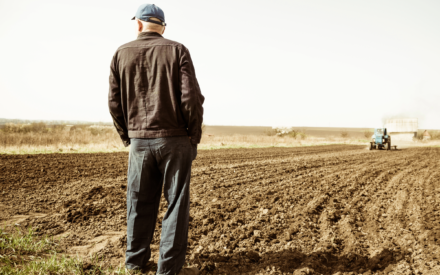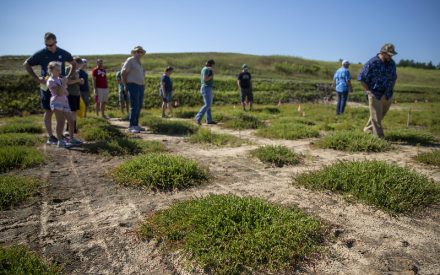Every day, farmers and farm families face financial challenges, demands of the job, and changes outside of their control that impact their lives and livelihoods. Market volatility for inputs and outputs, access to labor, challenging weather conditions, and the pressure to grow and modernize are underlying drivers of this occupational stress.
Coping with daily challenges can lead to chronic stress
Stress can affect a farmer’s mental and physical well-being, relationships, and decision-making. A 2019 survey conducted by the American Farm Bureau Federation found that mental health is an important issue to 82% of farmers/farm workers or their families. In addition, farmers and farmworkers are at a higher risk for death by suicide. Wisconsin farmers are 1% of the population and 2% of the suicides in the state, according to Sara Kohlbeck, Director of the Division of Suicide Prevention at the Medical College of Wisconsin. Kohlbeck’s research has noted issues leading to this rate, including lack of access to services, stress from physical health issues, ready access to lethal means, and the overall stress of farming. Farmers have cited obstacles of cost, embarrassment, and awareness of mental health to be a barrier to seeking treatment.
Mental health efforts for Wisconsin farmers
With the growing recognition of farm stress and mental health and well-being, several efforts to help farmers and their families have been established in Wisconsin.
The University of Wisconsin-Madison Division of Extension (Extension) has partnered with the Wisconsin Department of Agriculture, Trade and Consumer Protection (DATCP) to bring federal farmer mental health funding to Wisconsin from the USDA National Institute of Food and Agriculture (NIFA) as part of a multi-state effort. As a participating recipient of this federal grant, Wisconsin has received $400,000 to create educational programs that help people identify farmers in emotional stress and provide education on farmer wellness. The Resilient Farms and Families website offers education and resources on farmer well-being and mental health. The site developers are designing a map and populating resources for farmers by county. UW-Madison Division of Extension has also received a Rural Opioid Technical Assistance grant to offer Mental Health First Aid (MHFA) and other behavioral health education to rural and farming communities.
As part of Governor Tony Evers’ 2019-2021 biennial budget, DATCP received $200,000 to develop and launch a Farmer Wellness Program. Continued funding for this program in Governor Evers’ 2021-2023 biennial budget has allowed the program and usage of corresponding services to grow. Free and confidential services provided through the program address the needs of Wisconsin farmers and their families, including counseling vouchers, immediate support through a 24/7 helpline (888-901-2558), monthly online support groups, tele-counseling, and many other projects to reduce the stigma and increase awareness of mental health issues.
Farmer well-being and rural mental health cannot be treated like the crises of before. To break through the stigma and encourage self-care, a consistent and constant support network needs to be built and remain in place.






